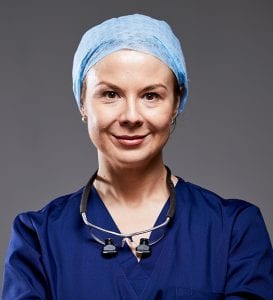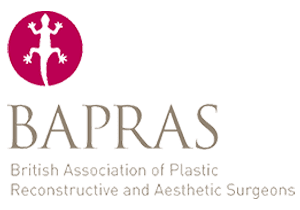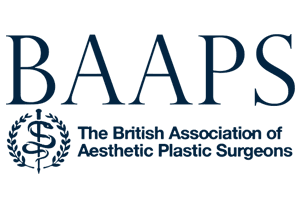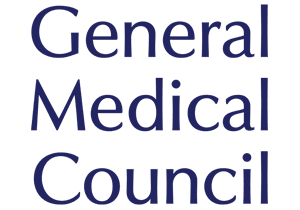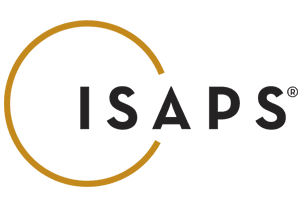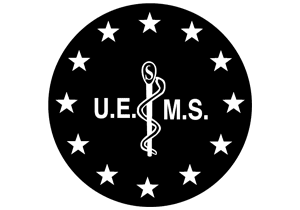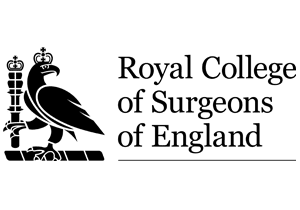
Table of Contents
- What to Expect During and After Cyst Removal Procedure
- The Importance of Cyst Removal
- What to Expect During a Cyst Removal Procedure
- Immediate Aftercare Following Cyst Removal
- Recovery after Cyst Removal
- Tips for a Smooth Recovery after Cyst Removal
- Potential Complications after Cyst Removal
- FAQs about Cyst Removal Surgery
- Further Reading about Procedures at Cheshire Cosmetic Surgery
What to Expect During and After Cyst Removal Procedure
You may have heard about cysts and cyst removal, but what exactly are they? A cyst is a sac-like pocket of tissue that contains fluid, air, or other substances. They can appear anywhere in your body, and while most cysts are benign, some can be cancerous. Cysts can vary in size and may not cause symptoms unless they grow large or rupture. Cyst removal is a surgical procedure performed to remove the cyst from your body. It’s a common procedure, often performed as an outpatient procedure under local anaesthesia. This means you can usually go home the same day. The type of cyst removal procedure you undergo depends on factors such as the size of the cyst and its location in your body.
Cyst removal surgery is sought after for a variety of reasons. If a cyst is causing you discomfort or pain, if it’s large, or if there’s a risk it could be cancerous, you may be advised to have it removed.
Chester Consultant Plastic Surgeon Anca Breahna will discuss the benefits and risks of the procedure with you, including what to expect during recovery after cyst removal.
The Importance of Cyst Removal
It’s crucial you understand the importance of cyst removal. While some cysts may disappear on their own without treatment, others can grow larger over time. Large cysts can cause pain or discomfort, and in some cases, they may disrupt the function of the organ they’re growing on. Furthermore, if a cyst ruptures, it can cause severe pain and lead to serious complications.
By removing a cyst, you can alleviate symptoms and prevent potential complications. The removed cyst can also be tested for cancer if necessary. Ultimately, cyst removal enhances your quality of life and reduces the risk of future health problems.
Cyst removal is generally a safe procedure, but as with all surgeries, it carries some risks. Anca will discuss these with you before the procedure. It’s essential to weigh these risks against the potential benefits of cyst removal to make an informed decision about your treatment.
What to Expect During a Cyst Removal Procedure
The exact process varies depending on the type and location of the cyst, but generally, you’ll be given a local anaesthetic to numb the area. In some cases, you may be put under general anaesthesia, which means you’ll be asleep during the procedure.
Once the area is numbed or you’re asleep, Anca makes an incision over the cyst. The cyst is then removed, and the incision is closed with stitches. The procedure typically takes about 30 minutes to an hour, depending on the cyst’s size and location.
Throughout the procedure, your vital signs will be monitored to ensure your safety. You’ll be looked after by a team of healthcare professionals who are trained to manage any complications that may arise.
Immediate Aftercare Following Cyst Removal
After your cyst removal procedure, you’ll be moved to a recovery room where healthcare professionals will monitor your vital signs as the anaesthesia wears off. Once you’re awake and stable, you’ll be allowed to go home. It’s advisable to have someone accompany you and drive you home, as you may still feel groggy from the anaesthesia.
Anca will provide you with instructions for caring for the incision site. This will include how to clean the area, identify signs of infection, and when to return for a follow-up visit. It’s crucial to follow these instructions to promote healing and avoid complications.
Pain is common after cyst removal, but it can usually be managed with over-the-counter pain relievers. You may also experience some swelling and bruising in the area, which should subside within a few days. Remember, it’s normal to feel a bit tired or weak after the procedure, but this should improve over time.
Recovery after Cyst Removal
Your recovery after cyst removal can vary depending on the type of cyst and its location. Generally, you can expect to return to your normal activities within a week or two. However, you may need to avoid strenuous activities for a while to prevent disturbing the incision site.
During the recovery period, it’s crucial to monitor the incision site for signs of infection, such as redness, swelling, or pus drainage. If you notice any of these signs, contact Anca’s team immediately.
Keep in mind that everyone’s recovery after cyst removal is different. Be patient with yourself and allow your body the time it needs to heal. Follow your surgeon’s instructions, rest as needed, and maintain a healthy lifestyle to promote healing.
Tips for a Smooth Recovery after Cyst Removal
Recovering from a cyst removal procedure can be a straightforward process if you follow specific guidelines and precautions. The importance of adhering to Anca’s instructions cannot be overstated. This adherence includes taking any medications as prescribed, which may include pain relievers and antibiotics to prevent infection. It is crucial to use these medications exactly as directed to avoid complications.
The care of the incision site plays a significant role in your recovery. Anca will provide specific instructions on how to clean and care for the wound. This often involves keeping the area clean and dry, and you might be instructed to apply a dressing or ointment. It’s important to watch for signs of infection, such as redness, swelling, or unusual discharge, and report these to your doctor immediately.
Follow-up appointments are a vital part of the recovery process. These visits allow your surgeon to monitor the healing process, address any concerns, and remove stitches or staples if they were used. Do not skip these appointments, even if you feel fine, as they are essential for ensuring that the site is healing properly and to prevent future complications.
Hydration and nutrition are important factors in recovery. Staying hydrated helps your body function optimally and aids in healing. A balanced diet rich in vitamins and proteins can significantly enhance your body’s ability to repair itself. Foods rich in vitamin C, zinc, and protein can be particularly beneficial in promoting wound healing.
Rest is another critical component. Your body needs time to heal, and rest allows your body to focus its energy on the healing process. Avoid strenuous activities, heavy lifting, or vigorous exercise until your surgeon confirms it’s safe to resume such activities. This caution helps prevent the reopening of the incision or other complications.
Mental health is equally important during recovery. It’s normal to feel anxious or stressed after a medical procedure. Engaging in relaxing activities, such as reading, watching your favourite shows, or meditation, can help ease your mind. If you’re feeling particularly anxious or depressed, don’t hesitate to talk to your surgeon or a mental health professional.
Communication with your surgeon is essential. If you have any questions or concerns about your recovery, don’t hesitate to ask Anca. She can provide you with the best advice and reassurance. Always report any unexpected symptoms or changes you notice at the incision site.
Potential Complications after Cyst Removal
Cyst removal, although typically a safe procedure, does carry a risk of complications, as with any surgical procedure. Understanding these potential issues can help you be more vigilant during your recovery and seek timely medical assistance if needed.
- Infection: One of the more common complications after any surgical procedure, including cyst removal, is infection. Signs of an infection include redness, swelling, increased pain, and pus drainage at the incision site. Fever may also accompany an infection. It’s crucial to keep the area clean and follow Anca’s instructions for wound care to minimise this risk. However, if you notice any signs of infection, it’s important to contact your healthcare provider immediately. They may prescribe antibiotics to combat the infection
- Bleeding: Some bleeding is normal after a surgical procedure, but excessive bleeding can be a cause for concern. If you notice that the dressing is soaked with blood or if the bleeding doesn’t stop, this may indicate a complication. In some cases, additional intervention may be required to stop the bleeding. Don’t hesitate to contact your medical team if you’re concerned about the amount of bleeding
- Scarring: Scarring is a natural part of the healing process, but in some cases, the scar tissue can become excessive. This is known as keloid or hypertrophic scarring. While not typically harmful, these types of scars can be cosmetically concerning or uncomfortable. If you’re worried about scarring, discuss this with Anca, as there are treatments available to minimise scar tissue
- Cyst Recurrence: Although the goal of cyst removal is to permanently eliminate the cyst, there’s a small chance that it can recur. This may depend on the type of cyst and how completely it was removed. If you notice a lump or swelling in the same area after your recovery, it’s important to consult Anca
- Damage to Nearby Structures: In rare cases, there can be accidental damage to nearby tissues or structures during the surgery. This risk varies depending on the cyst’s location and the complexity of the procedure. Your surgeon will take all necessary precautions to minimize this risk
- Severe Pain: Some pain and discomfort are normal after cyst removal, but if you experience severe pain that isn’t alleviated by prescribed or over-the-counter pain relievers, it’s important to contact your surgeon. Severe pain can be a sign of complications, such as infection
- Fever, Nausea or Vomiting: These symptoms can indicate an infection or other post-operative complications. A fever (a temperature higher than 100.4°F or 38°C) particularly when accompanied by other symptoms like nausea or vomiting, should be reported to your medical team immediately
- Bleeding from the Incision Site: While some oozing is normal, significant bleeding from the incision site can be a cause for concern. If the site starts bleeding or if the bleeding doesn’t stop, it’s important to contact your healthcare provider right away
FAQs about Cyst Removal Surgery

What are the different types of cyst removal surgeries?
There are several methods for cyst removal, depending on the type and location of the cyst. The most common types include simple incision and drainage for inflamed cysts, total excision to completely remove the cyst and its sac to prevent recurrence, and minimal excision, which involves a smaller cut and is often used for cosmetic reasons. Laser and laparoscopic methods may also be used for specific types of cysts or locations.
How long does cyst removal surgery typically take?
The duration of cyst removal surgery can vary depending on the size and location of the cyst, as well as the chosen surgical method. Minor cyst removals are often quick, taking about 30 minutes to an hour. However, more complex cases, especially those involving larger cysts or difficult locations, can take longer.
What type of anaesthesia is used for cyst removal surgery?
The type of anaesthesia used for cyst removal depends on the size of the cyst and its location. Local anaesthesia, where only the area around the cyst is numbed, is common for smaller cysts. For larger or more deeply located cysts, general anaesthesia, where you are put to sleep, may be necessary.
Can cyst removal surgery be done on an outpatient basis?
Yes, many cyst removal surgeries are performed on an outpatient basis. This means you can go home the same day of the surgery. Outpatient procedures are typically used for smaller cysts and when less invasive surgical methods are applied.
Are there any lifestyle changes I should make before or after cyst removal surgery?
Before surgery, you may be advised to avoid certain medications, such as blood thinners, to reduce the risk of bleeding. After surgery, lifestyle adjustments typically focus on wound care and avoiding activities that might stress the surgical site. Your surgeon will provide specific guidelines based on the nature of your surgery and overall health.
Medical References about Cyst Removal Surgery
- Skin cyst – NHS
- What to Know About Ganglion Cyst Removal
- Sebaceous cysts – PMC
- Minimal incision for removing sebaceous cysts
- Epidermal Inclusion Cysts (Sebaceous Cysts) – Cleveland Clinic
Further Reading about Procedures at Cheshire Cosmetic Surgery
- Read more about Why You Should See a Plastic Surgeon for Minor Skin Surgery, Lumps and Bumps
- Read more about Recovery after Mole Removal
- Read more about Minor Skin Procedures
- Read more about Lipoma Removal
- Read more about Birthmark Removal Surgery

